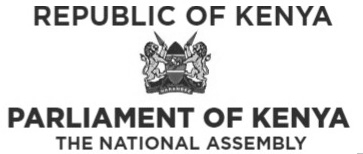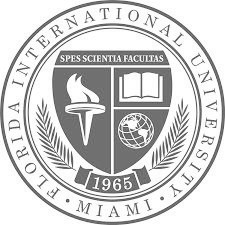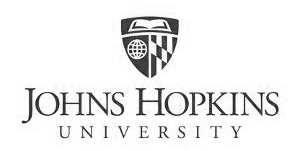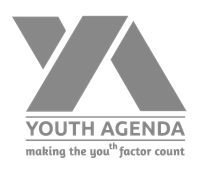CEO Best
Practices
Strategy. Leadership. Governance
:::
Thought Leadership
As a management consultant, Med Jones helped multi-billion dollar firms and government clients overcome organizational performance and cultural challenges. He compiled a checklist of observed symptoms and recommendations to help leaders diagnose the root causes of poor workforce performance. In 2005, he published an executive working paper providing a leadership tool for strategic alignment and overcoming negative workplace politics. Unlike most academic research papers that are based on the thinking of other academics with no executive management experience, the executive paper is based on first-hand real world observations and consulting experience. The paper is being used as a tool by executive leaders to help them identify symptoms of workplace dysfunction, motivational challenges, and overcome poor team performance.
:::
Industry Recognition
(Note: Some excerpts are Google-translated into English from their native language)
(Click on the reference thumbnails below to see the original source)
:::
Leadership Assessment in the Canadian Forces and Lessons Learned in
Somalia
This section
reveals that the leaders of the Canadian Airborne Regiment and
senior headquarters did not meet any of the leadership effectiveness
criteria selected for this study. We found that at the time, the CF
did not have a mechanism to assess the leadership of its members.
Our hypothesis is therefore validated. - [Med Yones ]
Lieutenant-colonel Richard Garon
Royal Military College
Saint-Jean
Government of Canada
(Canada)
![]() <-click on each logo for the
original
citation
<-click on each logo for the
original
citation
:::
Kenya's
Age of Bad Leadership
These
would be the kind of tired and retired ideas that have continued to
strangulate our political energies and entirely paralyzed any
forward political movement. Are corruption, tribalism, aggression,
patriarchy, impunity, and patronage only the preserve of the
elderly? ..There have been numerous studies over time about
leadership and, thankfully, Ngunjiri Wambugu of Change Associates
unearthed a really pertinent one on dysfunctional leadership by Med
Yones. Yones is categorical: Leadership is the most important
competitive advantage of a company, not technology, finance,
operations or anything else ... The leadership team is the most
important asset of the company and can be its worst liability...
Poor performance is the result of incompetent or dysfunctional
leadership ... the main reason for poor organizational performance is
... negative internal politics. Welcome to Kenya Incorporated. To
diagnose bad or dysfunctional leadership, Yones provides 17 signs.
Ngunjiri Wambugu
Member of Parliament,
Kenya National Assembly

Mugambi Kiai,
Program Manager, Africa Governance and
Monitoring at Open Society Initiative and Former Head of Human
Rights Advocacy program at the Kenya Human Rights Commission
![]() <- click on
each logo for the
original
citation
<- click on
each logo for the
original
citation
:::
Dysfunction of Veterans Health Administration and Story
behind the Scandal
In April 2014, whistleblowers at the
U.S. Department of Veterans Affairs Medical Center in Phoenix,
Arizona, exposed rampant wrong-doing and cover-ups heated debates
regarding the reasons why veterans are alleged to have died for long
time waiting, inappropriate scheduling practices, false record
keeping, budget mismanagement, lack of accountability, information
gap and secret waiting list....Lack of the necessary leadership
skills, did not select appropriate candidates for other important
position s the VA system inappropriately performed since decade.
Leadership and management have defined four functions: planning,
organizing, motivating and controlling (Med Jones, 2005)
Liton Chandra Voumik
Department of Economics
Public Policy and
Administration Research Journal
Florida International University
(USA)
 <- click on
each logo for the
original
citation
<- click on
each logo for the
original
citation
:::
Government
Leadership Curriculum
Early Warning Signs
of Organizational and Leadership Failures...Symptoms of Organizational and Leadership Dysfunction
[Med Yones]
Department of Health and
Human Services, Office of HealthIT.Gov
Johns Hopkins University
(USA)
 <- click on
each logo for the
original
citation
<- click on
each logo for the
original
citation
:::
"How to
Evaluate a CEO?"
The top 10 questions every
board must asks its CEO.
Korea CEO Magazine
(Korea)
:::
"How to Evaluate the Board of Directors?"
The Board of Directors Scorecard
CEO Q Magazine
(USA)
![]()
:::
Corporate Direction:
Clearing The Way
The worst economic crisis since the Great Depression
may finally have bottomed. Real recovery still remains elusive, ...
CEOs will be competing in a whole new world. As consolidation shakes
out the losers, a smaller group of winners... "What happened in the
financial industry is just a symptom of what is happening everywhere
else," says International Institute of Management CEO Med Yones, who
coaches Fortune 500CEOs. "The core of the recent crisis is a lack of
confidence. Transparency is critical in order to reestablish that
trust." By creating a culture around transparency and communicating
with strategic clarity, CEOs can, at the same time, provide a
framework of core values and rules for engagement, while giving
employees and partners the operational visibility and autonomy to
innovate and respond to opportunities and risks.
"Wrong
decisions are made on lack of information or misinformation," notes
Yones. But companies that achieve a culture of openness, in which
the right information is shared all the way down the line, stand to
benefit in a host of ways. Creating strategic and operational
clarity can dramatically improve profitability, encourage
stakeholder ownership of corporate goals and help the CEO combat
fraud.
"Risk management is about information," says Yones.
If corporate leaders do not have the right information or lack the
proper process for audit and are not tracking the proper metrics, it
will be too late to take corrective action when trouble rears its
head. "CEOs need to have a 360-degree view of the entire
organization, a total view of the potential area of trouble," he
notes. "The success of strategy is about execution, and execution is
about information. That's what differentiates one organization from
another in terms of performance."
CJ Prince
SAP
Corporate Magazine, SAP AG
(Germany)
 <- click on
each logo for the
original
citation
<- click on
each logo for the
original
citation
:::
Strategic Organizational Alignment Diagnosis
A comprehensive assessment designed to guide the
organization's ability to deliver and deliver sustainable results.
MANAGEMENT LABORATORY
BankRisk Group
(Brazil)
![]()
:::
An
Audit of Youth Representation In Public, Private Civil Society And
Faith Based Organisations
The definition of
leadership is as diverse as the people who attempt to package the
concept of leadership. For purposes of this statement, Med Yones'
assertion that leadership is the most important competitive
advantage of any entity may suffice. The statement asserts that the
leadership team of a company and/or any of its components is the
most important asset of that company but on the flip side, and of
particular importance, is that the same leadership can become its
worst liability. One of the highlights of the New Constitution of
Kenya is its recognition of the value of a leadership that is
accountable to the people and fully aware that the power they
exercise belongs to the people of Kenya.
A Study Supported by Ford Foundation
Susan K Mwongera, CEO
The Youth Agenda
(Kenya)
 <- click on
each logo for the
original
citation
<- click on
each logo for the
original
citation
:::
Watch Out for the Warning Signs of Bad Leadership
Med Yones, president of the International Institute of
Management, suggests to managers and leaders a set recommendations
that could help them identify and reverse the poor organizational
performance and negative workplace politics.
Dysfunctional leadership = dysfunctional organization
Aude Marie
Marcoux
Les Affaires (Business)
(Canada)
![]()
:::
Applied Network Analytics
Complexity is a sign of
intelligence. Simplicity is a sign of wisdom - Med Jones
Prof. Dr. Ren'
Algesheimer
Chair of Marketing and Market Research
Zurich
University
(Switzerland)
 <- click on
each logo for the
original
citation
<- click on
each logo for the
original
citation
:::
CULTIVATING CRITICAL THINKING WITHIN ORGANIZATIONS
The International Institute of Management, KASAC, created a model for executive education (Jones, 2005). [Med Jones] (2005) indicated that success is achieved by mastering these five areas: Knowledge, Analysis, Synthesis, Application and Communication. This model is used as the basis for executive education, coaching, and the evaluation process. Among these areas emphasis is on decision-making, understanding, identifying opportunities, diagnosing, determining critical success factors, finding potential pitfalls, and evaluating criteria. Also emphasized are uncovering situation variables, designing strategy solutions, prioritizing, and communicating to stakeholders while leading. The underlying foundation is the critical thinking ability and understanding of details, analysis and recommendations, articulation of ideas, and maintaining knowledge of key industry changes. Because critical thinkers realize the limits of being able to know all the factual information required for an opinion or decision, they are ready for developing the foundation for decision making among teams within an organization... Successful executives, managers, and employers are reflective thinkers, who are able to analyze, synthesize, evaluate, and conclude toward reaching a rational judgment.
Proceedings of SOCIOINT14- International
Conference on Social Sciences and Humanities
Professor Frederick
A. Ricci
Nova Southeastern University
(USA)
Calculating the Value of Human Capital Investments
"Sustaining high business performance is a
product of continuous strategic alignment." - Med Jones
Sonia Di
Maulo, MA, CRP
:::
Corporate Governance - Lessons Learned
"The leadership team is the most
important asset of the company - and can be its worst liability" - Med
Jones
Helen Hatton
Managing Director
Sator Regulatory Consulting
(USA)
:::
Corporate Governance
A
Project Management Approach to Implementing Internal Controls.
Sarbanes Oxley Visual Scope Statement - Med Yones
The
Government Finance Officers Association of Arizona (GFOAz)
Jeff
Rogers, MBA, CIA, PMP
(USA)
:::
International Mobility of Students and Faculty
"Knowledge networks will revolutionize the
global economy. They will change the way we think, learn and work.
The prosperity of a nation and its people will be determined to a
large degree by how well they can leverage the global knowledge
networks to develop their resources, collaborate, innovate and
market their products and services" - Med Jones
Prof. S.R.
Shankapal, Education Management
Director at M.S.Ramaiah School
of Advanced Studies,
(India)
:::
The Road to Strategic Alignment
"Sustaining High Business Performance is a Product of
Continuous Strategy Alignment" - Med Yones
The CEO
Magazine
:::
Executive
Education Best Practices
"European CEO learns about CEO best
practices... A highly respected executive leadership coach"
European CEO Magazine
(UK)
:::
Organizational Wellness
Too
often, organizational leaders equate "wellness" with physical
health-oriented programs, such as giving staff subsidized
memberships to the local gym, or adding health support programs to
the benefits plan. But true organizational wellness is much broader
in scope, and the best organizational leaders seek to identify and
address root causes rather than symptoms. If stress-related absences
are on the increase, internal conflicts between people and teams is
mounting, and there is declining productivity and morale, this can
be a strong sign that there are deeper issues of dysfunction inside
the organization. These issues directly impact the organization's
relative wellness and its capacity for peak performance, both of
which warrant the attention of senior leadership and the board. The
International Institute of Management (IIM) has published an online
white paper titled Organizational Politics: Symptoms of
Dysfunctional Organizations by Med Yones that outlines a range of
warning signs to be looking for if you are an organizational leader
or board member.
The Leading for Wellness Foundation
(USA)
:::
Unhealthy Culture in the Workplace
No
organization is free from politics because the desire for power is
inherent in human nature, according to
Med Jones, president of the
International Institute of Management. Successful leaders reward
collaborative efforts and penalize negative behavior. These
standards turn upside down in an unhealthy corporate culture, whose
hiring, promotion and recruiting practices are crafted to fulfill an
internal political agenda, says Jones. Managers using this model
treat friends more favorably, frustrating better-qualified
candidates whose talents might advance the company's performance.
Ralph Heibutzki
(USA)
:::
40 Under 40
"Business leaders who have distinguished themselves not only in
their profession...who have made the Las Vegas a better place to
work and live.
Rob Langrell, Editor
InBusiness Las Vegas
Magazine
(USA)
![]()
:::
Selected Opinions and Media Quotes
Management Opinions and Quotes and Citations
Executive Education and CEO Leadership Quotes and Citations
Happiness Economics and Welll-being Quotes and Citations
Financial Crisis and Economics Quotes and Citations
:::
Related Pages:
-
For bio and media info, please visit Med Jones' Bio page
:::
Contact Information:
- For speaking and consulting engagements, please contact the International Institute of Management
- Please note that Mr. Jones is available for interviews related to business strategy, economic development, happiness and well-being economic, he does not give economic forecasting or investment related media interviews. For institutional investment think tank research and consulting services, please contact the Institute.
:::


